

Introducing 'Hitogura': A New Brand for Solo Living Support
The Launch of 'Hitogura'
On July 4, Able Corporation, headquartered in Minato, Tokyo, announced the establishment of a new brand named 'Hitogura', focusing on supporting individuals living alone. In recent years, there has been a noticeable increase in people opting for solo living, prompting a demand for comprehensive support that extends beyond just housing. To meet this need, 'Hitogura' includes the 'Solo Living Research Institute', which will conduct thorough research on various aspects of living alone, aiming to provide valuable services based on data.
The timing of the launch coincides with the 4th of July, a day symbolizing independence. This was a deliberate choice to celebrate the independence of those starting their new lives in solo living. As part of this initiative, they unveiled the 'Independent Living Survey Report', presenting insights into how modern individuals spend their time alone and their perceptions related to solo living.
Overview of 'Hitogura'
With the changing landscape of work styles and values, an increasing number of people are choosing to live alone. However, the complexities of challenges faced by those living solo—from finding an apartment to managing daily life—are also surging. 'Hitogura' was born as a new brand that sincerely addresses these contemporary realities. It doesn't just focus on housing but aims to fully support the entire lifestyle associated with solo living. The 'Solo Living Research Institute' will utilize data and survey results held by the Able Group to disseminate reports related to living alone, as well as provide information on events and campaigns aimed at enhancing the living experience for solo dwellers.
Independent Living Survey 2025
The results of the survey regarding solo living and how individuals spend their time alone are enlightening.
- - Survey Details:
- Method: Online survey
- Total Responses: 1,013 individuals (varies by question)
- Demographic: Domestic residents aged 15-49
Among the findings, 39.4% of individuals who enjoy spending time alone reported living solo. When exploring slightly different categories, an impressive 86.0% of solo dwellers, 75.7% of cohabiting couples, and 74.5% of families indicated they either enjoyed solo time or leaned toward it being favorable. This underscores a common affinity for solitary time across various living situations.
Additionally, approximately 23.5% of solo dwellers reported spending more than 10 hours a day alone, particularly in the context of remote work and shifting lifestyle patterns. The average times spent alone varied by living arrangements: 6.37 hours for solo dwellers on weekdays compared to just 3.95 hours for couples and 3.54 hours for families. On weekends, solo dwellers enjoy an even more significant amount of downtime, averaging 7.57 hours alone. This reveals a trend where individuals prioritize their personal time, highlighting the evolving definition of family dynamics.
Interestingly, while 17.7% of single men expressed feelings of loneliness, the figures slightly decreased among cohabiting women at 17.4%. Combining those who feel lonely regularly or occasionally shows a total of 61.0% for couples and 58.0% for families, compared to 57.5% for solo living situations. Surprisingly, the survey results suggest that solitary living, particularly among women, is not equated with increased feelings of loneliness.
The boom in ‘solo’ trends has seen a rapid rise in services and establishments catering to individuals who prefer to go out alone. The survey revealed that solo activities, such as watching movies or visiting cafes, are now comfortably embraced by over half of individuals across all household types. However, slightly more niche options like solo karaoke and solo BBQ dining still saw 30-40% of respondents open to the experiences. Notably, 1-2% of individuals reported enjoying solo foreign travel and solo theme parks, indicating a positive shift regarding social acceptability of solo adventures.
The growing acceptance of solo experiences marks a significant cultural shift. Time spent alone is increasingly viewed as a normative and valuable part of modern life rather than an isolated occurrence.
A Look Ahead
The insights generated from the survey indicate that living alone is not inherently “lonely,” but rather a conscious choice for individuals to cherish their time and lead fulfilling lives. As more people adapt to solitude, they tend to find their unique ways of enjoying personal time, enriching their own experiences whether dining alone, spending weekends differently, or pursuing a hobby. Both solitary and shared times contribute to a colorful life, highlighting the importance of feeling comfortable in either scenario.
At the 'Solo Living Research Institute', the goal is to promote a lifestyle that finds balance and harmony, whether alone or alongside others. Aiming to support the notion of

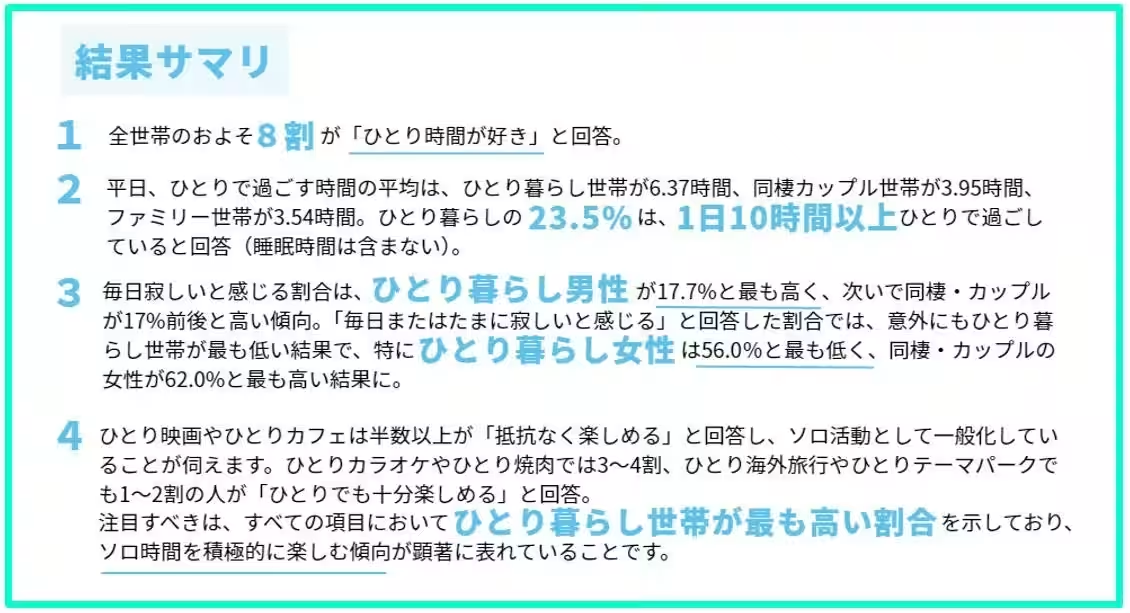
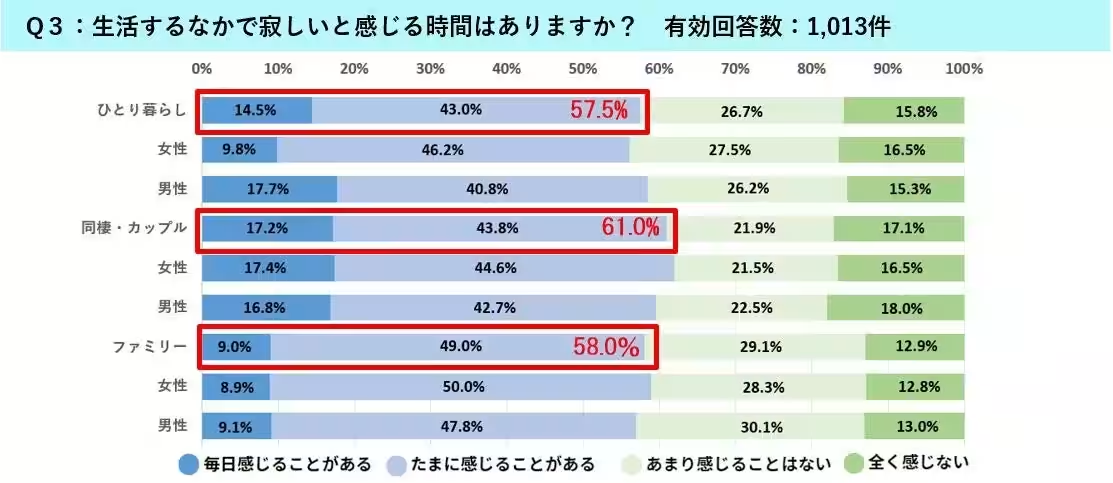
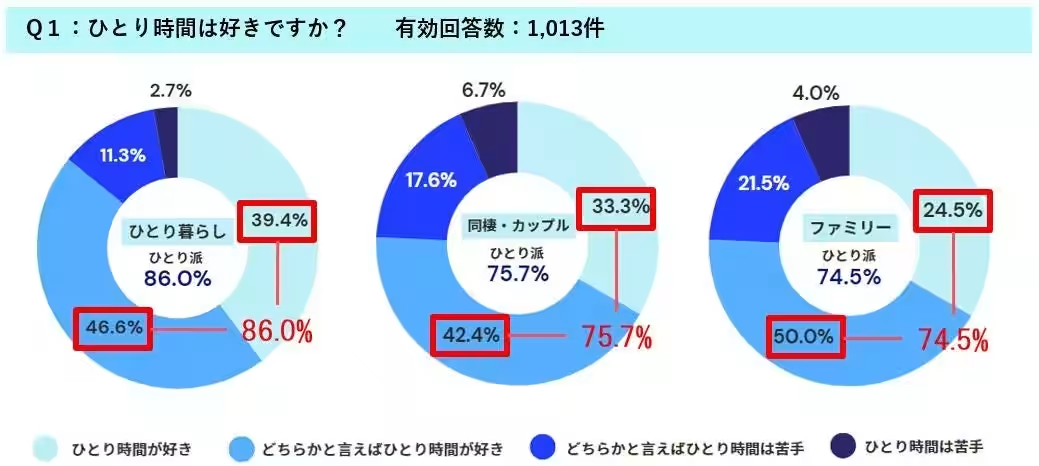
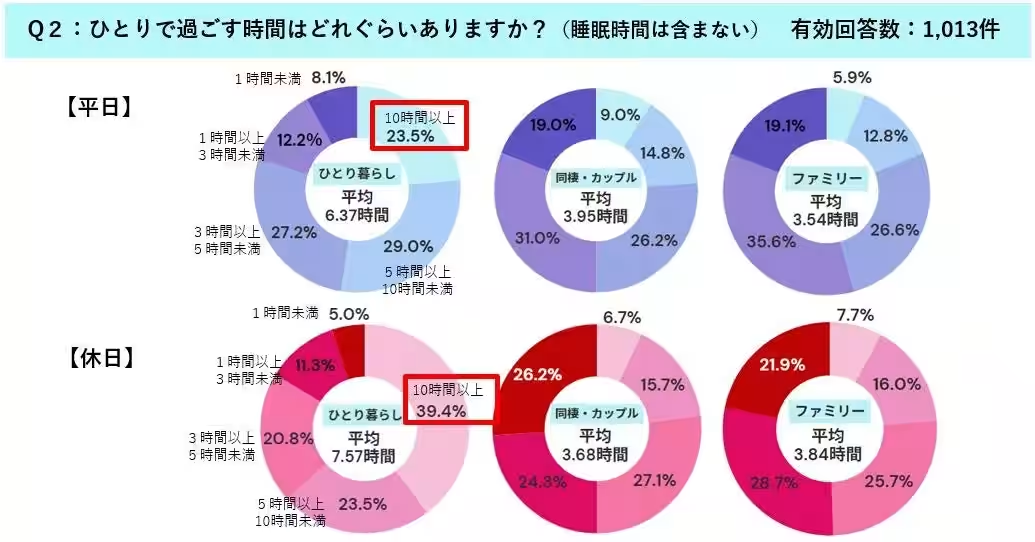
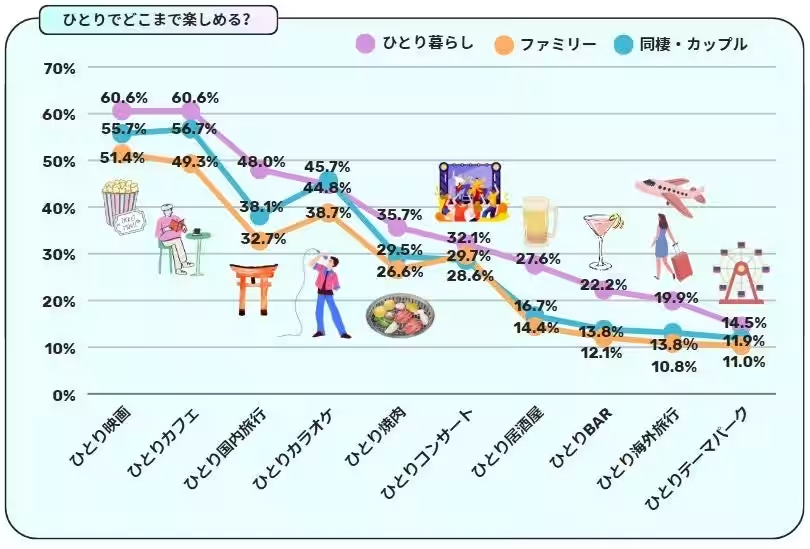
Topics Other)










【About Using Articles】
You can freely use the title and article content by linking to the page where the article is posted.
※ Images cannot be used.
【About Links】
Links are free to use.